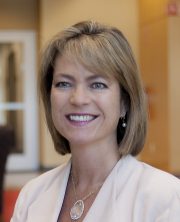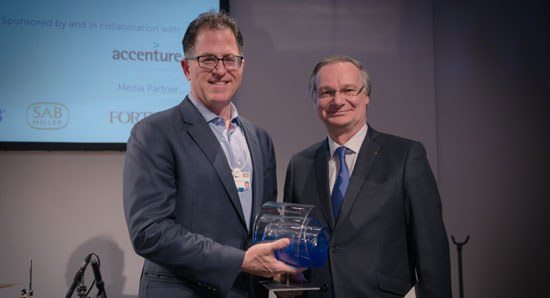 By Trisa Thompson, Vice President of Corporate Responsibility, Dell
By Trisa Thompson, Vice President of Corporate Responsibility, Dell
Today, we live in a mostly linear economy, one in which we take, make, consume and dispose of natural resources daily. The end result? Trash and diminishing natural resources. This model is not sustainable.
Over the next 30 years, three billion people will enter the middle class, which means there will be three billion new consumers of more stuff, including technology. This is great news for both IT and the prospect of eradicating poverty, but it also forces us to become much more thoughtful and focused on maximizing the resources that are available.
A circular economy aims to decouple economic growth from the use of natural resources and ecosystems by using those resources more effectively. The transition requires that we rethink how value is delivered in the marketplace. Examples from the sharing economy point the way: Car2Go – which offers a fleet of cars that can be booked using a smart phone – helps maximize the value of a vehicle by taking advantage of the fact that most of us only spend a small portion of the day driving. Interface Carpets is another: they do not sell carpet tiles – they lease them and take back the worn tiles for recycling.
Technology plays a key role in the transition. Cloud services and mobile technology already enable us to do much more while relying on shared data center infrastructures. Meanwhile, machine-to-machine communication and the Internet of Things as well as the ability to collect and analyze big data are radically transforming the way we monitor resources, identify efficiencies, and reinvent systems.
At Dell, circular thinking and design principles have been core to our sustainability strategy from the beginning – from product design and innovative packaging materials to smarter shipping and robust recycling programs.
In addition, Dell is committed to enabling customers to use cloud services, virtualization and other technologies that make it easy for customers to achieve their goals without acquiring more ‘stuff.’
During the inaugural Circular Economy Awards at Davos, our Dell team was honored with the 2015 Accenture Award for Circular Economy Pioneer. The award recognizes established organizations demonstrating existing business innovation that supports a circular economy.
“Dell is not only setting an outstanding example through its own sustainability practices, but is playing a leading role in advancing the standards, infrastructure and international policies that will move the entire technology industry toward a circular economy. This will safeguard scarce resources and ultimately improve the competitiveness of those who, like Dell, are leading the charge,” said Pierre Nanterme, CEO of Accenture.
Many teams across Dell contributed to this recognition, but a few specific initiatives stood out to the judges:
- Our implementation of a major redesign across engineering, industrial design, procurement, logistics and marketing, resulting in the use of more than 10 million pounds of post-consumer recycled plastics in our products.
- Our work with UL Environment to create an industry standard and 3rd party validation for “closed loop” systems as well as production of the OptiPlex 3030, the first computer made using certified closed-loop recycled plastics.
- Working in over 78 countries to ensure that consumers find better ways to extend the life of their technology (of any brand), and using our position as one of the leading global technology vendors to advance standards, infrastructure, and international policies.

Michael Dell with Pierre Nanterme, CEO of Accenture, at the 2015 Circular Economy Awards, Davos Switzerland.
Advancing a circular economy requires that we all look beyond our walls to inspire better practices throughout our entire ecosystem, making sustainability easier for customers and partners. How can IT help better position your business for the transition to a circular economy? Please feel free to tweet me @TrisaDellCRO.
For more information on Dell’s circular economy efforts, visit dell.com/circulareconomy or follow us on Twitter @Dell4Good #LegacyOfGood.
Trisa Thompson is the VP of Corporate Responsibility & Talent and Capabilities at Dell, with responsibility for Dell’s global philanthropy and sustainability. Prior to this role, Trisa was a Vice President in Dell’s Legal Department for 12 years. Outside of the office, Trisa currently serves on the boards of I Live Here, I Give Here — an Austin-based organization promoting philanthropy in the local community — and Lifeworks. Trisa also serves on the Emeritus Advisory Board for Law and Technology News and is a member of the Global Giving and Sustainability Councils at Dell. In 2014, the National Diversity Council awarded her the Most Powerful and Influential Women of Texas Award and named her as one of the Top 50 Women in Technology in 2014.
